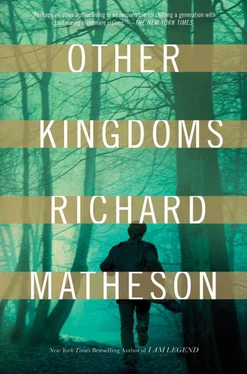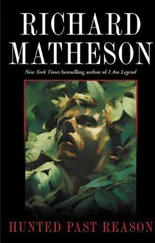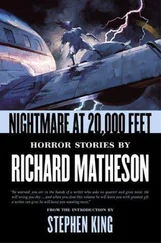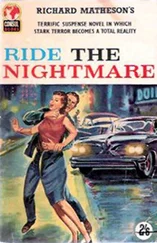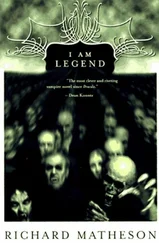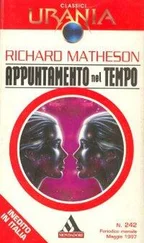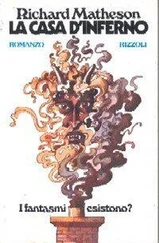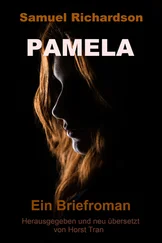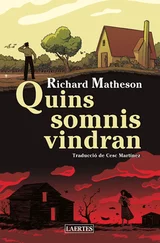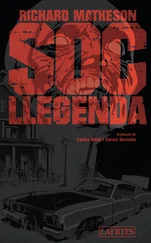Why I made my mistake so soon, ascribe to carelessness—or, more likely, to paying no attention to Joe’s words. At any rate, I left the path and walked over a carpeting of leaves toward the luring sound of the stream. A minute (or less or more) in, I reached the bank of the stream and found there, as though waiting for me (avast with negative fancies! I ordered myself), a fallen birch trunk on which I perched myself and gazed at the smoothly running water. It was a hypnotic sight. The water, in a shaft of sunlight, looked silvery. I remember sighing with pleasure at the sight. At that moment, I felt inspired, not angry as I’d been before; determined not to return to Brooklyn. This was so much more peaceful and comforting. All the new elements in my life seemed attractive now, so reassuring. Even Comfort Cottage was attractive in its own lumpy, shapeless, leaking fashion—no, it wouldn’t leak now with Joe repairing the roof. The rye bread was delicious, the yellow cheese, the creamy milk. All was pleasing.
In this billow of appreciation, I picked up a small rounded stone and tossed it into the stream. It plopped delightfully.
At which I thought (or thought I thought), Don’t do that, boy.
Strange, I was sure I thought. Why did such a reaction occur to me? Boy? I’d never conceived of myself as boy. Why now? I picked up another stone.
I said no, the thought immediately came to me. I started. Then, as though in reprisal, the foliage of the trees I sat beneath began to shake. And I recalled—as though I actually heard his voice again, Joe calling down from the roof, “Don’t leave the path, young man!”
I pushed to my feet. The pain in my hip and leg—which had not been more than mildly annoying for months—suddenly flared, and I would have fallen had I not thrown down my right hand, jarring its palm on the birch trunk. I cried out, faire la move (grimacing in French) in pain; it felt as though I’d come in contact with an electric shock. Rearing up, as best I could—very clumsily, in fact—I lurched back toward the path. I thought.
I couldn’t find it. The damn thing’s vanished! I reacted. Where the hell is it? I knew I hadn’t walked that far from it. A minute? Less! God damn it! I felt genuine fury at my inability to regain the path. No, God damn it, not inability! Something was playing a trick on me! A God damn, vicious trick! Why? What had I done to offend that “something”? Tossed a God damn stone into the God damn stream? I ran and ran.
Sense took hold of me at that point. A voice inside my head that said, Calm down, you idiot. You’re letting your imagination run away with you. It was your own mind—enjoying that state of inner pleasure—that told you not to disrupt the perfection of the streamside loveliness by throwing a stone in the water. Then a follow-up thought on the same subject, a dumb reaction to the trembling foliage, an ungainly stand due to your still-healing wound causing a loss of balance and a palm-down fall on the birch trunk, the “electric shock” no more than a tender nerve’s response to the impact. A moronic, lurching run followed. Stupid, I told myself. Totally stupid.
Looking around, I saw the path; waiting, I thought at first. No, not waiting. I scolded myself. Just there. I reached it and turned back toward my cottage. As I did, I saw another path I hadn’t noticed earlier. I stopped for a few moments to look at it. The path disappeared into tree-filled thickness. I suggest you don’t enter it, I said to myself. No need to suggest it, my mind replied. You’ve had enough for one day.
Which is when I saw the feather. It was white—startlingly white—lying at the foot of the new path. I leaned over and picked it up. As I did, a wind began to blow through the overhead tree foliage. I shuddered, my skin erupting into gooseflesh. Instantly, I dropped the feather; I’d had barely a moment to look at its delicate beauty. Enough! —cried my mind. Reason was abolished. Primeval fear swept over me, and I ran again. Imagining—or not—that I heard a faint voice calling out to me from the woods inside the previously unnoticed path. No! (The thought was both enraged and terrified.) I ran until I saw my cottage in the distance. I slowed down then but walked rapidly until I reached it.
“I wondered how soon you’d be back,” Joe said. He was still at work on the roof. It seemed a bit late to me, and it was. I hadn’t been gone that long, had I? I let the question lapse. After what I’d been through.
“You left the path, didn’t you?” Joe said, telling me.
I drew in a rasping breath. “How do you know?” I asked.
“You’re flushed,” said Joe. “Your cheeks are red.”
Damn, I thought. I hadn’t mulled it over, but I believe I didn’t intend to tell him what happened. But I did, the words spilling quickly.
“Wait a second,” Joe told me. He came down the ladder and stood before me. Listening patiently to my semi-breathless account, then finally smiling. “I told you not to leave the path,” he said.
“You think that… something really happened?” I could only call it “something”; it was the best I could manage.
“Of course it did,” he said without hesitation.
“What?” I think I demanded.
“It was the wee folk,” he said. “You’re lucky they let you escape.”
I gaped at him in wordless disbelief. “The wee folk ?” I said.
“Yes.” He nodded, still smiling. “The little people.”
“Little people,” I said, completely dumbfounded now.
“Yes, little people,” he repeated. “Those who live in Middle Earth.”
Captain Bradford Smith White, USN, was, if anything, a stark realist. Neither Veronica nor I—nor Mother, for that matter—were encouraged (say, rather, “permitted”) to express an opinion unless—and even then—we could “back it up” with factual information. This was the attitude I was raised with. Facts first, then opinions. Verify all statements. Especially those with any “outré” element. Father loved that word.
You can deduce then with what incredulous doubt I stared at Joe. Inbred from birth, my cynicism reigned supreme. Oh, I was frightened enough by what happened to me when I was sitting by the stream and when I picked up that white feather. But those were nerve-affected incidents. Explaining them as Joe did? “Persiflage.” Another of Dad’s favorite words, however badly defined. “Poppycock.” Another favorite, perhaps more accurately used. Were Joe’s words poppycock? I thought they probably were.
“You don’t believe me,” Joe said, as though reading my mind.
“Well… Mr. Lightfoot,” I began, politely if dubiously.
“Joe,” he corrected.
“Joe,” I said. “You’re… well, you’re asking me— expecting me—” I added quickly, still in the thought (prejudice) realm of Captain You Know Who. “—to swallow [was that too harsh?]—to accept what you’re telling me.”
“Why?” he asked. “It’s the truth.”
“Wee folk?” I said—not too scornfully, I hope. “Little people?” I made a scoffing sound. “Why not invisible people?”
“They’re that, too,” Joe answered. “You didn’t see them, did you?”
He sounded so gullible to me. Not me; the Captain’s welldisciplined son. I could only speak his name. My tone was clear enough, though—disbelieving, almost pitying—that I could see him tensing, face and body.
“Very well,” he said, his voice stiffened. “Believe what you will. But don’t go off the path again if you value your life.”
Читать дальше
